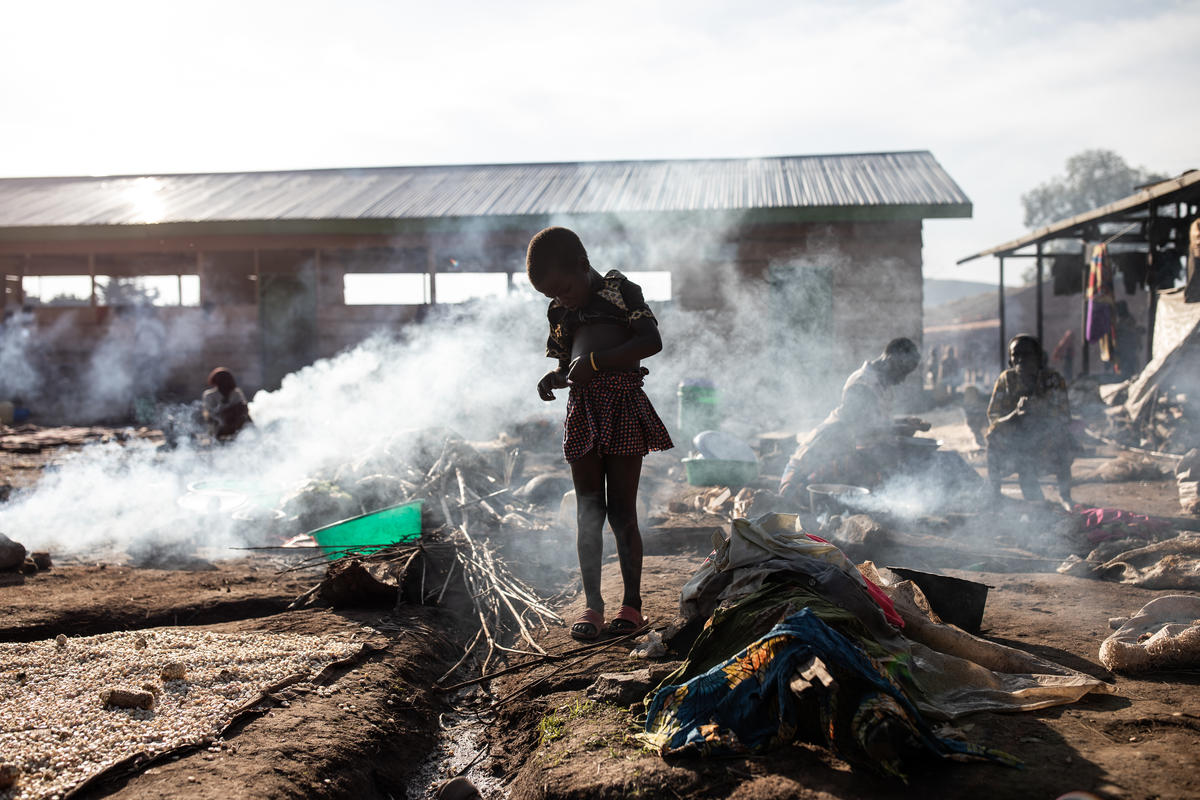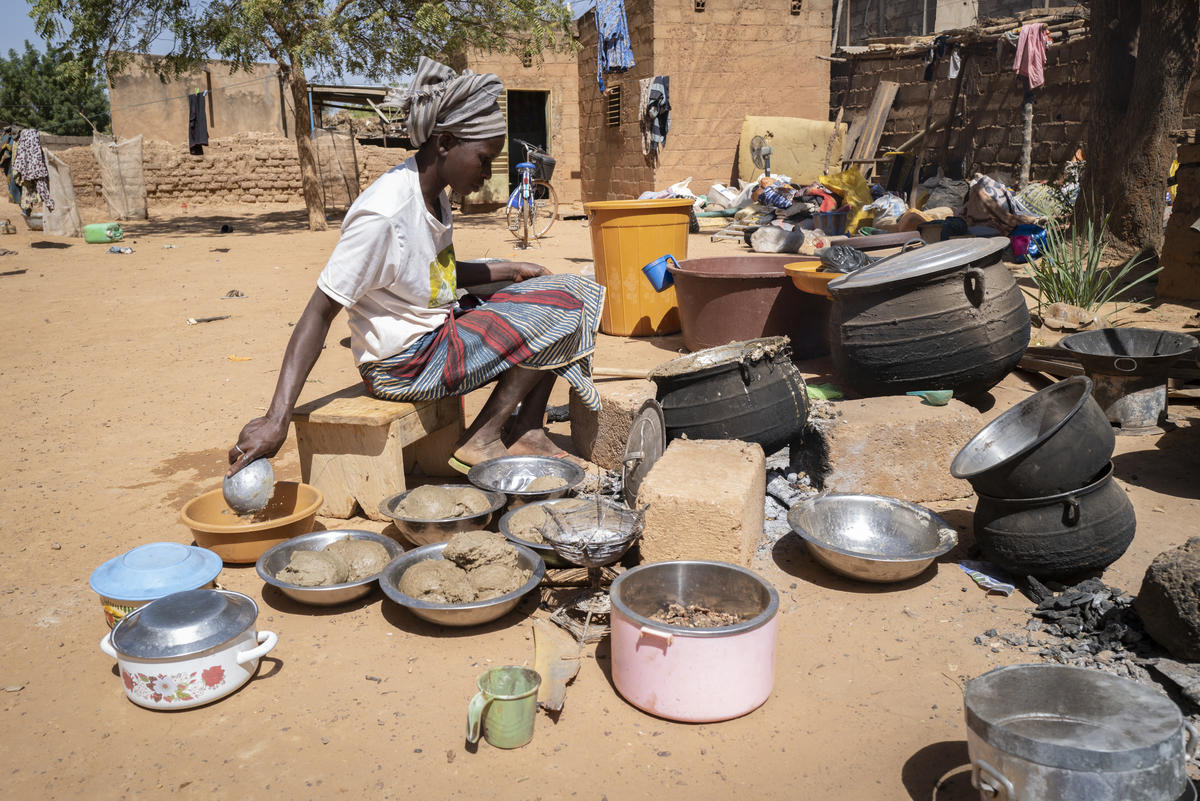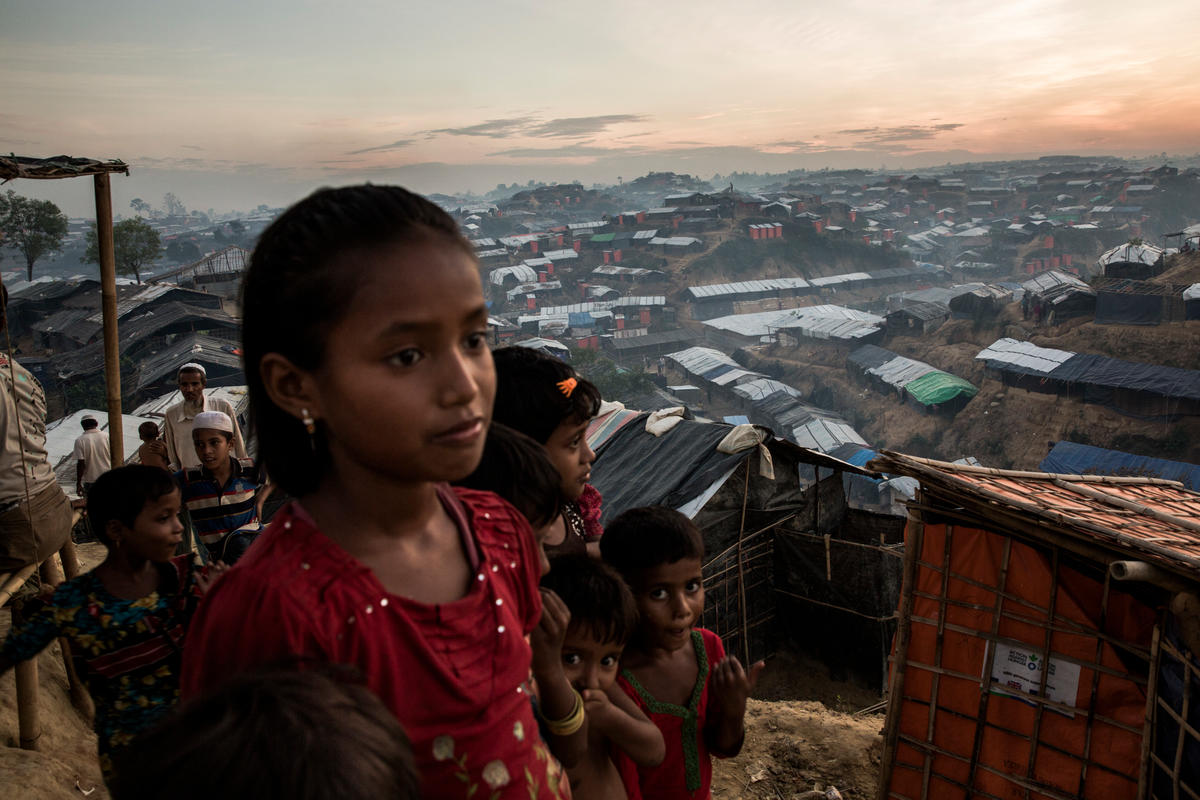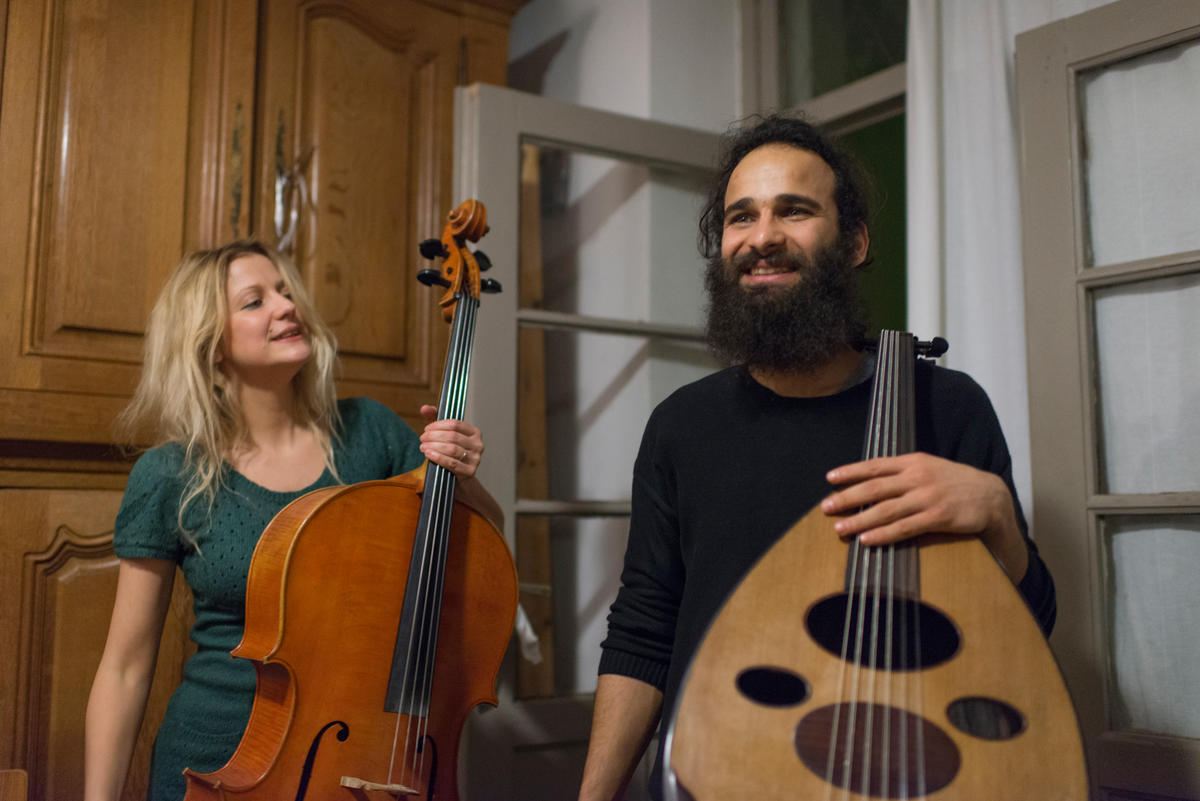Iraq's displacement crisis deepens as civilians flee latest ISIS offensive
Iraq's displacement crisis deepens as civilians flee latest ISIS offensive
The latest ISIS offensive on the city of Hit in Iraq's Anbar province has triggered another wave of internal displacement in central Iraq, while the north of Iraq receives a surge in the numbers of Syrians fleeing Kobane in Syria, via Turkey.
In the past few days, after its capture by ISIS and affiliated armed groups over the weekend, an estimated 180,000 people have fled from Hit, 180 km from Baghdad, and the surrounding areas. The city's mostly Sunni residents, as well as other Iraqis who had found refuge there in the past, fled to Ramadi, Khaldiya, Hadithat, Rawa, Ana, Amiryah Rahaliya, and other places in Anbar province, as well as further afield to Kerbala and Baghdad. Many are sheltering with relatives and friends, as well as in schools, mosques and public shelters that are already hosting Iraq's mounting numbers of internally displaced.
Until recently, Hit had been a safe haven for those who had fled earlier waves of violence in Ramadi, Fallujah and other parts of Anbar, providing shelter for some 100,000 displaced people. The exodus from Hit represents the fourth major wave of displacement in less than a year in Iraq, and for many of those caught up in it, it is the 2nd, 3rd or even 4th time that they have had to flee since January. Tens of thousands of desperate Iraqis are now caught in a rolling wave of multiple displacement amidst the conflict's shifting frontlines.
UNHCR field staff met with some of them while conducting a rapid needs assessment in western Baghdad yesterday. Among them was a 30-year-old woman, originally from Ramadi, who had just fled from Hit with her elderly mother and disabled brother. The family has been displaced three times since January, fleeing the advance of ISIS throughout Anbar. They first fled to Khaldiya where they stayed eight months, then fled to Hit for a month, before running for their lives once more in the past few days.
Another 27-year-old woman with two young children fled her home town of Hit after her husband was killed by shelling. Though afraid to leave the house, she was even more afraid of the impact of new ISIS rules on herself and her children if she stayed, having heard stories from relatives in Al Qaim and other places in Anbar already overrun by the group. After a long 14-hour journey to Baghdad via Kerbala, she is now staying with relatives. These families join the ranks of Baghdad's existing 75,000 displaced people whose key concerns include shelter, health care and finding a source of income, and add to the estimated 1.8 million citizens who have been internally displaced this year throughout the country.
UNHCR is sending mattresses, jerry cans, blankets and other relief items to Ramadi, Kerbala, Abu Greihb and the west of Baghdad city where displaced people have fled. However, humanitarian access to large parts of Anbar province is extremely limited by the ongoing conflict.
Meanwhile in northern Iraq, an increasing number of Syrian Kurds from Kobane are seeking shelter in Dohuk province having crossed the border from Turkey. Last Friday night, the Kurdish authorities opened the Ibrahim Khalil border, near Zakho, easing the journey for the steady stream of people who last week had to pay smugglers $250 each to cross.
Some 5,400 Syrians from Kobane have now entered Iraq, including 3,600 people in the last 72 hours. Another 10,000 to 15,000 people are expected to cross in the coming days.
The Syrians cite various reasons for moving on from Turkey. These include civil unrest; the high cost of living; difficulties with aid - especially with the looming winter; and family links to people already living in the Kurdistan region of Iraq. Among the new arrivals in recent days was 55-year-old Mohammed who suffers from a lung infection and depends on an oxygen tank to survive. He was carried by his sons into Turkey. The family spent what little money they had on accommodation, food and travel during two weeks in Turkey. Once registered in Iraq, he hopes to join his brother in the regional capital of Erbil.
Upon arrival in Iraq, the asylum-seekers are screened by border authorities and transferred by IOM to Gawilan camp, set up a year ago for previous waves of Syrian refugees. But the camp reached its capacity yesterday, and new arrivals from today onwards will be taken to the Arbat refugee camp in Suleymaniyah province, which can host an additional 7,000 people. Plans are already under discussion with the authorities to expand the Darashakran camp in Erbil province, if more people come. UNHCR is also setting up a reception centre at the Ibrahim Khalil border to protect the new arrivals from the elements while they are screened by border officials. UNHCR protection teams and its partners are at the border to identify particularly vulnerable people.
Iraq already hosts some 214,000 Syrian refugees with the vast majority residing in the Kurdistan region of Iraq. The more than 1.8 million internally displaced people in 2014 add to almost a million existing internally displaced people who had fled violence in previous years.
For more information on this topic, please contact:
- In Amman, Bathoul Ahmed on mobile +962 7 9022 4281
- In Ankara, Selin Unal on mobile +90 530 282 7862
- In Erbil, Liene Veide on mobile +964 771 842 2682
- In Erbil, Natalia Prokopchuk on mobile +964 780 921 7341
- In Geneva, Ariane Rummery on mobile +41 79 200 7617









